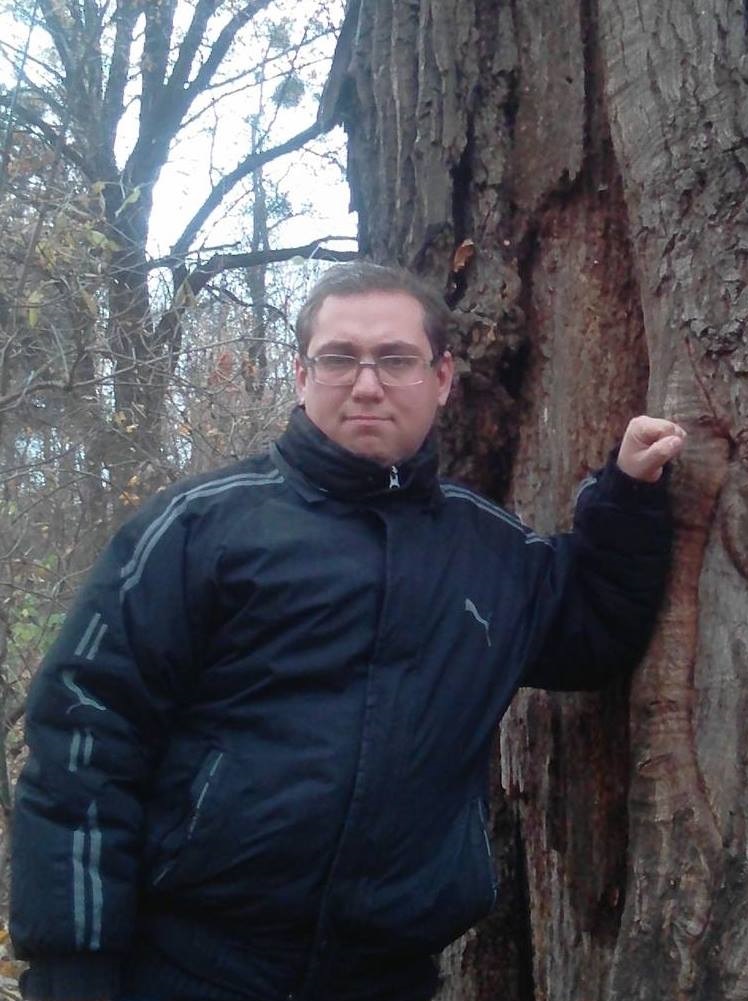On February 11, the world celebrates the Day of Women in Science. We decided to ask our compatriots who connected their lives with space exploration about what they were doing during the war and what they were interested in. Each of them has its own interesting story.
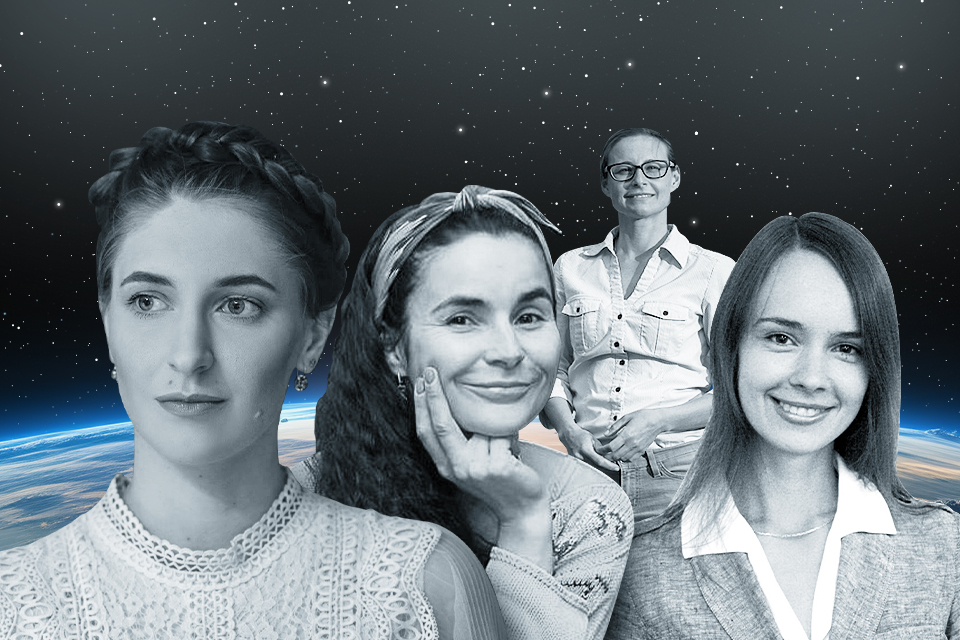
Kateryna Serhieieva
Senior Scientist in EOS Data Analytics
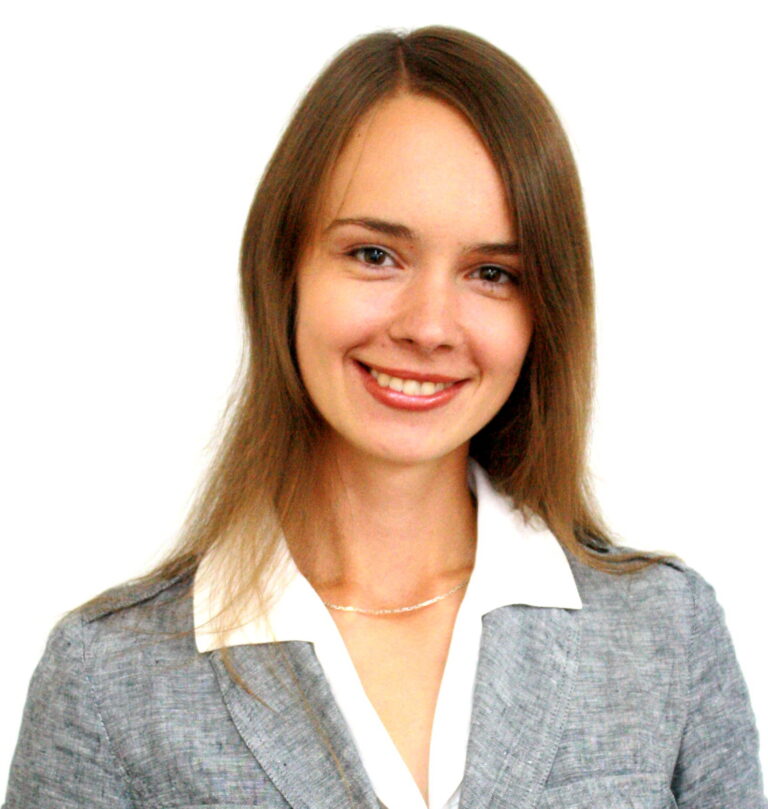
1. What inspired you to become a researcher?
The desire to go forward and expand the horizons of knowledge, to look for answers to questions that have not yet been explored and not fully disclosed, motivated me to scientific activity. Scientific activity is a constant search for answers to the challenges of the present, an opportunity to look into the future and make efforts to build it. Working in science means interacting with a huge team of like-minded people from different parts of the world, united by common goals and a common vision. After all, this is a calling, and probably the only right way.
2. What do you do in science?
For more than 15 years I have been creating methods and algorithms for analyzing geospatial data to solve environmental management problems. Most of the projects I am working on now and have worked on in the past rely on optical and radar data from aerospace monitoring of the Earth. I started my way in science from dissertation studies of the ecological state of mining territories. I paid a lot of attention to the issues of exploration of mineral deposits, forecasting the consequences of emergency situations. In general, the range of tasks is quite wide and includes monitoring of agricultural lands, research of the state of forest plantations, monitoring of the impact of industry and urbanization processes on the state of the environment.
3. What do you consider your greatest scientific achievement?
The opportunity to work on real tasks and implement the achievements obtained. In fact, “live” solutions that can help in certain problems of society, a certain group of people. The approving feedback from stakeholders regarding the proposals provided for them is very important to me. I consider the greatest achievement to be the search for answers to actual and important real problems and challenges.
4. What motivates you to continue working in hard times?
The world of science is separated from external adversities — a kind of separate universe, reliable and safe. In hard times, the support of colleagues is very important, as well as an interest in your business and a vision of its development prospects. Understanding the importance of scientific research and the realization of a calling inspire continuous search and work under any external circumstances.
5. Do you think there is gender discrimination in the scientific community? If so, have you encountered it?
In the scientific world, everyone is equal. We are all a single community, we differ among ourselves in priority areas of research, scientific vision and approaches to solving certain issues. We work together, discuss and listen to each other’s opinions without any distinctions.
6. What advice do you give to schoolchildren and students who dream of becoming scientists?
Believe in yourself, go to your dream, despite the obstacles that the present makes us. The world is open to those who want to know its secrets. Being a scientist is a fascinating journey of a lifetime, a lot of work and incredible efforts worth of them.
Olena Companiiets
Astrophysicist, junior researcher of the Department of Extragalactic Astronomy and Astroinformatics of the Main Astronomical Observatory of the National Academy of Sciences of Ukraine, educational curator of the popular Science4Kids lecture hall created by PO (public organization) INSCIENCE. Postgraduate student of the Institute of Physics of the National Academy of Sciences of Ukraine. Chairman of the Council of Young Scientists of the Main Astronomical Observatory of the National Academy of Sciences of Ukraine.
1. What inspired you to become a researcher?
I grew up in a village in the Kherson region, where there was no illumination of the sky from bright lanterns, so the stars look incredibly beautiful. As a child, I loved the movie “Star Wars” very much, and my dad and I also liked to fantasize about the topic: “What is there in space?”. I think all these factors supported my curiosity, which eventually turned into a hobby, and then into a profession.
2. What do you do in science?
Most galaxies have supermassive black holes in their centers, and when matter falls on them (accrets), scientists say that the core of the galaxy is active. I am engaged in the study of active galactic nuclei using observational data in the X-ray range obtained by various space observatories. Also, I am now trying to master a new technique that will allow analyzing the radiation from the galaxy in the entire range of the electromagnetic spectrum. This way we will be able to get more information about the various components of the galaxy: dust, gas, and stars.
3. What do you consider your greatest scientific achievement?
It’s a good question, I’m still just taking my first steps in science, since I’m studying in postgraduate and working at the observatory in parallel. I am incredibly happy that we have finally published a paper that started back in my bachelor’s degree. Now I have changed my direction of work and other results at the stage of publishing, so I can’t share it yet.
4. What motivates you to continue working in hard times?
I am motivated by our Ukrainian Armed Forces and dreams. Dreams that humanity will choose the path of development for itself. I believe that we will definitely win, and not only work helps me to stand, but also volunteering. The girls and I have a public organization called “wings of victory”, and we try to do everything in our power to help Ukrainian Armed Forces to bring victory closer.
I am also an educational curator at the popular science lecture hall for children, INSCIENCE, and it is our listeners who also motivate me to continue working and fighting, because they have so many questions. Children are our future and I am happy that I have the opportunity to work with them.
5. Do you think there is gender discrimination in the scientific community? If so, have you encountered it?
Gender discrimination exists in the minds and opinions of people living in the past. I believe that they are not worth spending our energy on them. If you want to do science, only your knowledge, skills and perseverance are important. Everything else can be overcome, especially now when we have such a strong community and the number of organizations that support women.
6. What advice do you give to schoolchildren and students who dream of becoming scientists?
To be dreamers, to be prepared for the fact that it is difficult to study and not always everything will be clear or come out right away. They will make mistakes. But it’s all an integral part of our life. The main idea is not to give up, and choose for yourself the section of science that will interest you and will be your internal engine to overcome difficulties.
Krystyna Mylostna
Researcher at DRAO (Dominion Radio Astrophysical Observatory) in Canada. She moved from Kharkiv in March 2022.
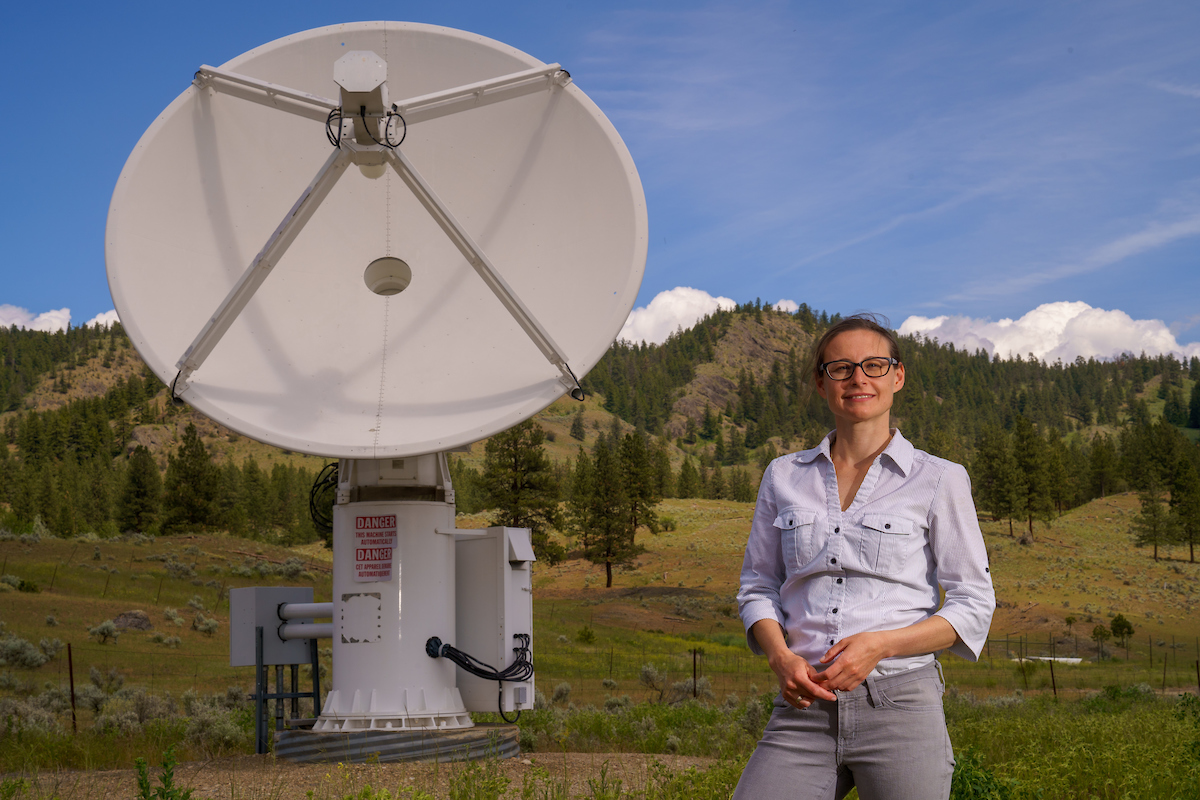
1. What inspired you to become a researcher?
I decided that I wanted to be a scientist as a teenager. The desire to solve complex problems and master new knowledge has always been my life guide. Science is the engine of progress and prosperity of the nation. The development of society largely depends on the development of science. Thus, scientists are people who bring great benefits to their country and humanity as a whole. Namely, to be useful is my main desire. Finding a job that will make you not only useful, but also happy is for me the position of a scientist.
2. What do you do in science?
I study the solar system and the radio emission of planets.
3. What do you consider your greatest scientific achievement?
Oh, that’s a question from any interview. Truth be told, but not counting scientific achievements, this is that I do not quit science with a salary of USD 180. I come from a poor family and have seen all my life what a small salary is. But the love of science turned out to be stronger. I am currently working in Canada. And for the first time in 10 years of my scientific career, I can feed my family. I would like that after the end of the war in Ukraine, the salaries of scientists would become decent. As for science. For 8 years I studied the radio emission of the planets of the Solar system. I defended my PhD thesis at the age of 26, which was quite early. Over the years of research as part of the IRA NASU (Institute of Radio Astronomy of the National Academy of Sciences of Ukraine) research group, I have studied lightning on Saturn and searched for lightning in the atmospheres of Venus, Mars and Uranus. We find that lightning on Saturn is many times more powerful than in the Earth’s atmosphere. By the nature of their temporal structure, we have confirmed the possibility between their cloud origin. This makes it possible to localize their place of origin – altitude in the atmosphere. This is important for further study of Saturn’s atmosphere in many respects, primarily for future missions involving the descent of the spacecraft into the atmosphere.
4. What motivates you to continue working in hard times?
Now my family motivates me. From the first days of the war, I forgot about work for 2 months due to the fact that I had to leave my hometown because of the beginning of the shelling. But when you need to feed your family, when you need to continue living, you break out of despair — and go on the offensive. All I think about every day is my family. I am a mother, daughter, and granddaughter. I have the capacity to take care of my family and do it. The fact that I was lucky enough to stay in the profession was a great success.
5. Do you think there is gender discrimination in the scientific community? If so, have you encountered it?
Exists. And I have encountered it. Fortunately, I was lucky, and there was not much of such an attitude. There was discrimination while studying at the university. From male students and male professors.
6. What advice do you give to schoolchildren and students who dream of becoming scientists?
Be persistent. Act actively. There are always different Olympiads, contests and conferences. For example, at V.N. Karazin Kharkiv National University, we organized “Barabash Readings” — a small conference for schoolchildren and students. Such events are the beginning of the path to adult scientific life. There is no need to be afraid. Even if you can’t make a better report, if you forget the text or you are criticized, this is only a practical experience of life. This is the path that will be in any career. Just do it, go ahead. The most persistent always wins!
Anastasiia Skoryk
Candidate of Physical and Mathematical Sciences, Junior Researcher at the Radio Astronomy Institute of the National Academy of Sciences of Ukraine, Senior Lecturer at the Department of Astronomy and Space Informatics of V. N. Karazin Kharkiv National University.
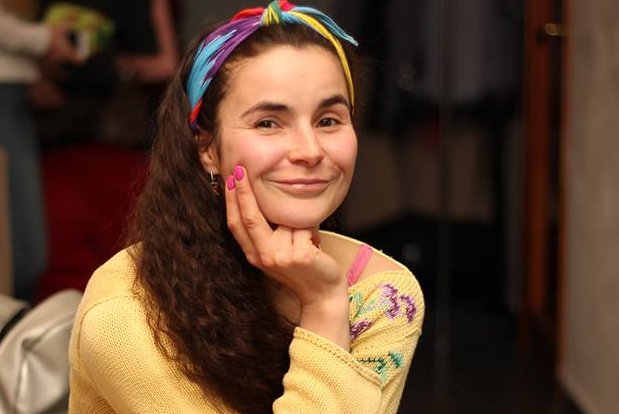
1. What inspired you to become a researcher?
I’ve been dreaming about astronomy all my life. I was inspired by a children’s book where they talked about the first telescopes, about different constellations, and the sizes of objects in the Solar System were compared with fruits. After that, I had a dream for a long time to look into a real telescope, which I realized in the astronomical circle at the Kharkiv Planetarium.
2. What do you do in science?
I was engaged in radio astronomy, studied pulsar radiation and studied the field of radiation generation. And then I was engaged in automatic detection of intense impulses by machine learning methods.
3. What do you consider your greatest scientific achievement?
Now my greatest scientific achievement, let the feminist movement forgive me, is the defense of a dissertation during maternity leave with a two-year-old child. However, it was the best time to defend, in my opinion. I hope that my scientific achievements are still ahead.
4. What motivates you to continue working in hard times?
Unfortunately, I am not actively conducting scientific research now because I am raising a second small child, but I plan to return to them soon. Simultaneously, I teach at the University and there are other non-scientific projects related to astronomy: I develop software for astrophotography and conduct classes with children. Work gives us a sense of tomorrow, which the terrorist country has stolen from us, along with our territories, fellow citizens and electricity.
5. Do you think there is gender discrimination in the scientific community? If so, have you encountered it?
I have not encountered gender discrimination in the workplace, except for small silly jokes, which I do not pay attention to. I am lucky because I know the stories of very smart girls who are kept in the team for the registration of grants and other paperwork. I have certain difficulties in my scientific career, which are connected with the fact that I am a woman and a mother, so I have a lot of time to devote to my family. But this is my conscious choice. In addition, men with a family also have additional loads and responsibilities.
6. What advice do you give to schoolchildren and students who dream of becoming scientists?
Astronomy is a wonderful science! I still laugh that it is worth becoming an astronomer, at least to observe the reaction of people when you talk about your profession: “Does this really exist in our country?!” Astronomy provides a very wide range of knowledge that can be used in many industries, oddly enough. This is the ability to work with data, this is information technology, this is a wide worldview and inoculation against pseudoscientific lies. So, if you decide to associate your life with this science, do not hesitate and do not delay. It’s worth it!
Follow us on Twitter to get the most interesting space news in time
https://twitter.com/ust_magazine

